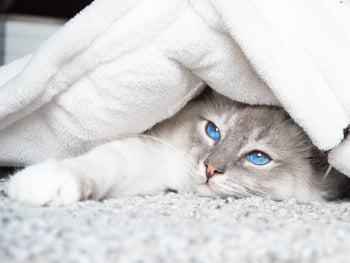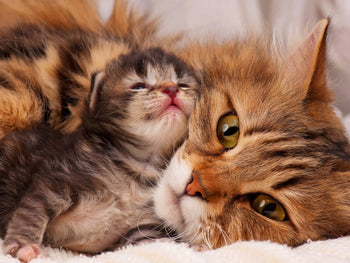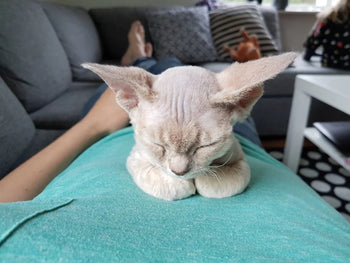
Overall, there are a lot of reasons that necessitate rehoming cats: someone in the family develops an allergy to cats, constant bickering between pets, relocation,... Cat shelters receive thousands of cats that need new homes every year and unfortunately, many felines have to be euthanized. But is it wise to adopt cats on a whim? Cat adoption tends to require considerable time, effort and money. In case you fail to understand the effects of rehoming a cat, you are going to put yourselves in a tough situation without fail.
Want to hear what experts in the field have to say regarding rehoming a cat including its effects on humans as well as the pet? If that happens to be your wish then you have come to the right place. The information down below shall tell you everything you need to keep in mind about bringing cats to new homes,
To People In The House

"It's just a cat, what could happen?" you think. Well, a lot of things may take place while adopting a cat, many of them pass as trivial matters but some might bring you and your family to the limit.
-
Finance Would Be Slightly Strained
Assuming that the feline comes from a well-established shelter, it must have already received all the necessary vaccination shots. However, to be on the safe side, you should get your cat to the local veterinary clinics for thorough examinations. If the vets detect signs of health issues, prepare to face some hefty bills at the end of the day. Aside from medical expenses, you also have to spend quite a bit on the foods, toys, litters,.... for the pet. Without formulating a proper budget plan in advance, the family finance shall face noticeable difficulties.
-
Substantial Changes To Daily Activities
With a cat eager to explore its surroundings around, people in the house could experience several disruptions in their life. In most cases, the interferences from the pet seem adorable but if it pushes things too far, it's natural for everyone to feel frustrated. That is why before adopting a particular cat, make sure that you grasp its behavior. Depending on their personality and tendency, certain felines may only be suitable for specific households. So save yourself and every party involved a headache by checking if the cat is truly good for your house.
-
Sudden Appearances Of New Responsibilities
Of course, when you bring a cat into the house, you have to take care of its needs and requirements. That often means filling the feeding bowl, scooping the litter box, cuddling with the pet,... Considering the rather busy life of people, it's a good idea for you to ask your family to cooperate in looking after the feline. Once again, you have to prepare a well-thought plan so your cat never feels left out in the house. After all, cats have a reputation for being affectionate which causes them to become depressed if neglected for too long.
To The Newly-Adopted Pet

The effects of rehoming a cat don't limit themselves to humans, they show up on the pet as well. That is why it's strongly recommended that novice pet owners keep watch over their furball and intervene if necessary.
-
The Dreaded Fear Of Uncertainty
Cats adore familiar sights and usual habits so if people bring them to entirely different places, they shall withdraw themselves. On the bright side, the curious nature of the felines ensures that your fluffy friend would venture out to explore its surroundings after some time. That being said, for the first few days, the pet should be kept in a small room with enough necessities (water, foods, litters and alike). Doing that would give the latest member of your family a chance to calm down and prepare for new adventures.
-
Competition For Resources Between Pets
Fights among the pets always give cat parents a very hard time, especially when it comes to the entrance of a newcomer with unclear motives. Hence, increased aggressiveness is often one of the most notable effects of rehoming a cat. Some cats happen to embrace the "me and only me" attitude which puts them at odds with other household pets. Because of that, pet owners have to be thoughtful while introducing cats to each other. Once conflicts seem imminent, step in and separate the felines to let them cool down.
-
The Depression Of Being Abandoned
Normally, cats should be able to adapt themselves to changes in environments eventually but some may fail to do so. For such pets, the loss of well-known habitat as well as the disappearance of recognizable faces simply proves unbearable. After falling into a depression, cats might stop eating and drinking altogether which puts them at risk of developing fatty liver syndrome, a dangerous condition. Day after day, the pet looks out to every passerby hoping to see its owner's face only to drop down in disappointment every time.
Check us out for further detailed cat tips & facts!
How To Re-Home A Cat Properly: Tips And Tricks

Sure, there are multiple effects of rehoming a cat but if cat parents follow a couple of rules, everything would turn out to be fine.
-
Don't Be A Pushover
When it comes to adopting cats, you need to refrain from acting impulsively on the spot without considering your situation. Many people adopt a cat because it originally belongs to someone they know only to send the poor pet to the shelter within a week. To avoid leaving emotional scars on the feline, think carefully before making up your mind.
-
Settling In Always Take Times
Cats truly except at adapting but rushing them rarely produce desired results in most cases. Therefore, once you adopt a cat, remember to give it time to get its bearing. Stay around to assist your fluffy friend is indeed nice but don't be overcaring.
-
Keep Some Contact On Hand
In case all things fail and you have to find a new home for your cat, save the contact information of cat shelters, sanctuaries and so on in your neighborhood. That would leave you a couple of viable fallback option if the situation becomes unsalvageable.
Looking for more interesting Cat Tips & Facts? Visit Cattybox!









